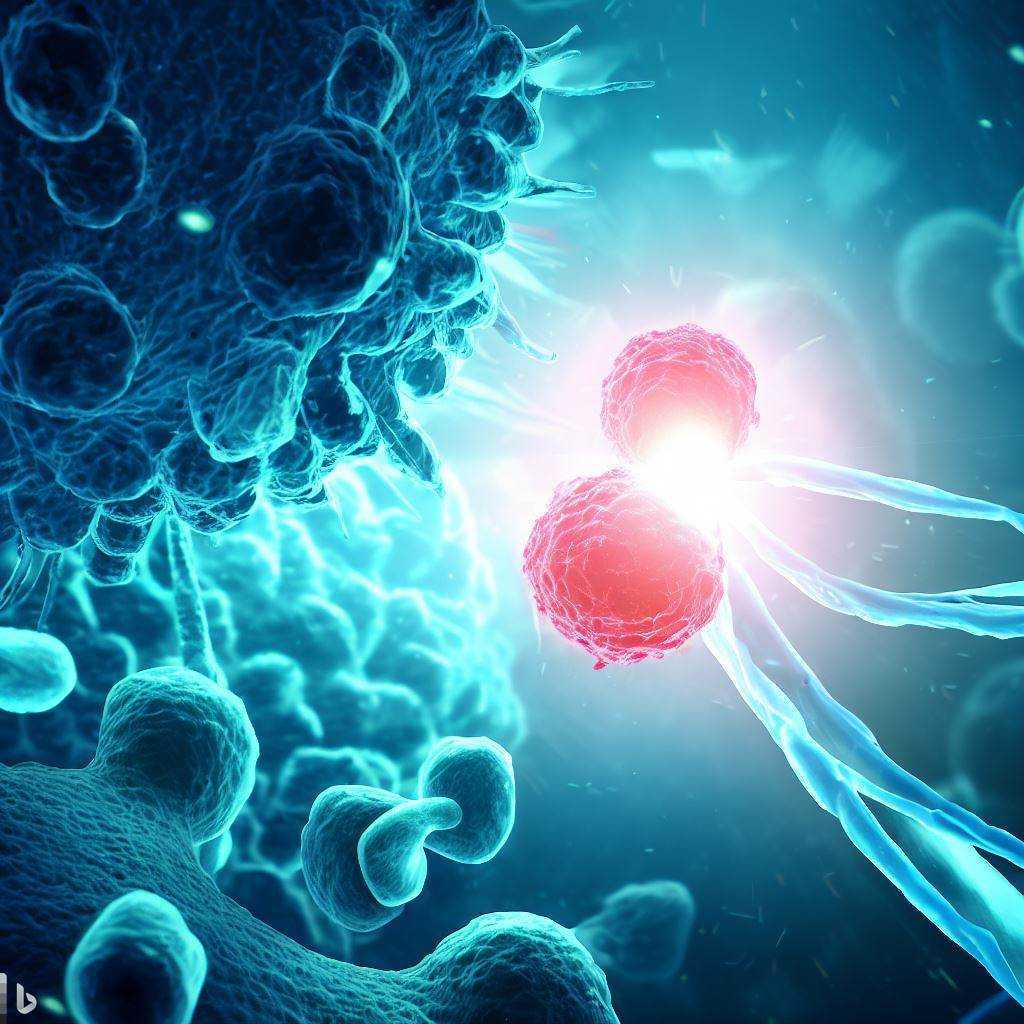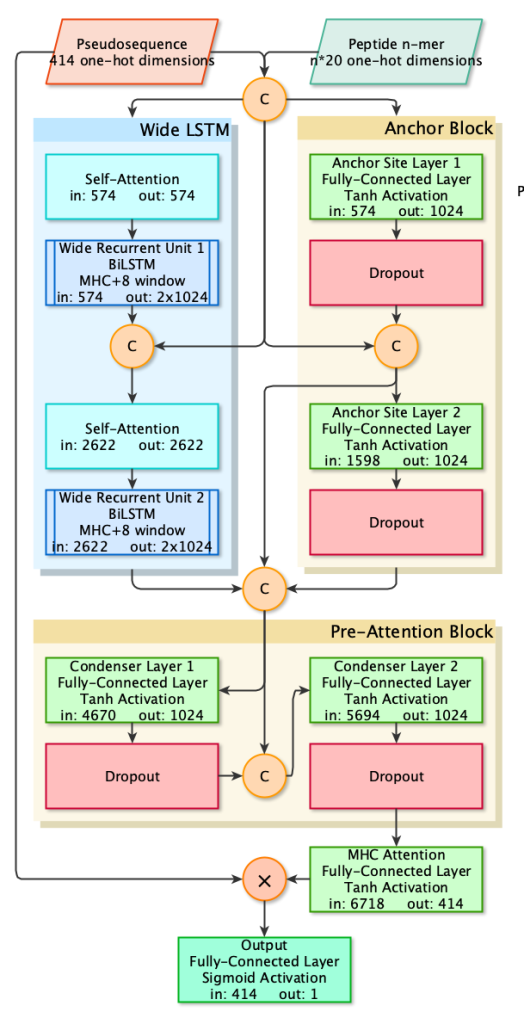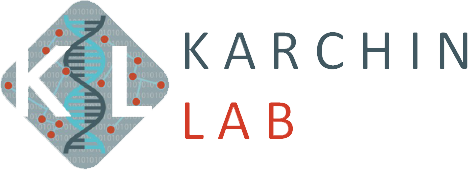
 In the emerging field of precision cancer immunotherapies, understanding the basis for immune system recognition of tumor cells has become crucial. The primary signal with which T cells recognize tumor and professional antigen-presenting cells (APCs) is the binding of T cell receptors (TCRs) to neoantigen peptides presented by Major Histocompatibility Complex (MHC molecules) on the cell surface. While the intent of neoantigen prediction is to predict whether a peptide elicits T cell activation, most current predictors aim at the easier task of predicting which peptides will bind to or be presented by MHC molecules.
In the emerging field of precision cancer immunotherapies, understanding the basis for immune system recognition of tumor cells has become crucial. The primary signal with which T cells recognize tumor and professional antigen-presenting cells (APCs) is the binding of T cell receptors (TCRs) to neoantigen peptides presented by Major Histocompatibility Complex (MHC molecules) on the cell surface. While the intent of neoantigen prediction is to predict whether a peptide elicits T cell activation, most current predictors aim at the easier task of predicting which peptides will bind to or be presented by MHC molecules.
We developed MHCnuggets, a deep-learning model capable of processing varying peptide lengths and predicting binding to both MHC I and II types. This model proved that a limited set of predicted MHC II neoantigens could discern between responders and non-responders to immune checkpoint therapy, outperforming traditional tumor mutation burden metrics in lung cancer studies. In our latest study, we introduced BigMHC, a deep neural network ensemble engineered to predict how T cells respond to specific antigens. We innovated a representation for MHC alleles by pinpointing key amino acid residues from an extensive cross-species sequence analysis. The networks were first trained on a very large peptide-MHC (pMHC) presentation dataset, identified via peptide elution and mass spectrometry. We then fine-tuned the networks through transfer learning with a curated dataset of pMHCs, experimentally validated to initiate T cell activation. This technique significantly outperformed existing methods in predicting T cell reactivity, as confirmed by ELIspot and MANAFEST assays.


